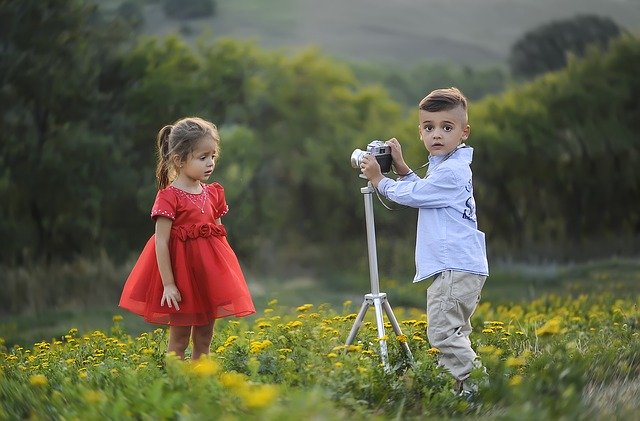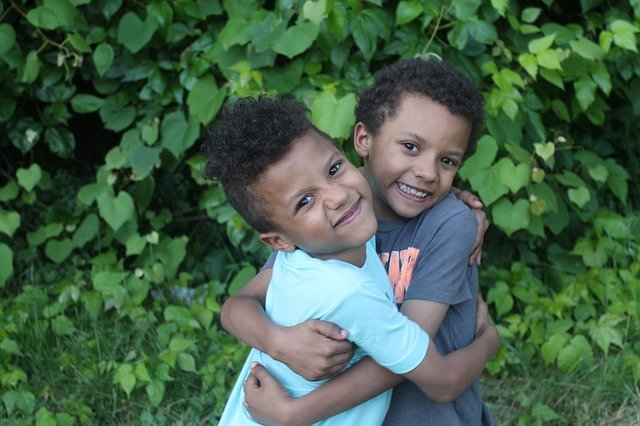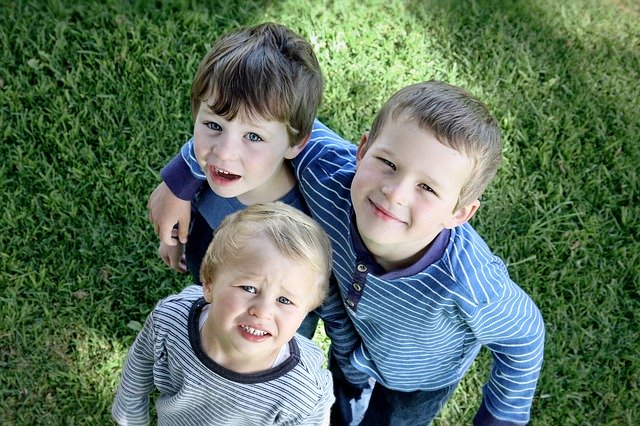Being a brother or sister to a child with autism and ADHD is not easy. As parents and caregivers, we spend so much time and attention caring for our autism/ADHD kids. We do our best to provide equal love, nurturing and care for all our kids. However, we know that sometimes they can feel pushed to the side or left out. So how can we make sure that we are providing the care and attention they need too? Follow these nine tips to provide support for siblings of children with autism and ADHD.
Our son J has a brother who is two years younger than him. Being two years apart means that at times in their lives they’ve had common friends and interests. That has caused conflict when you have a child who has social skills challenges that can interfere with a sibling’s friendships. It’s even harder when your brother has high-functioning autism, so at a glance, he “doesn’t seem autistic” to most people.
While our younger son understands his older brother has both autism and ADHD, it doesn’t make the situation any better. He has to deal with the behavior challenges that comes with these conditions. We have struggled over the years to help minimize the conflict, but sometimes it’s inevitable with two brothers – even if both of them were neurotypical.
So how can you make sure to support siblings of children with autism and ADHD?
1. Set aside time to be with all of your kids

As parents or caregivers of kids with autism/ADHD, we know they can take up a lot of our time. That is why we have to be intentional about setting aside time to spend with all of our kids. It’s important to talk to them about what’s going on with them, their interests, their problems and their needs. You also have to find ways to have fun with each child. J’s younger brother and I sometimes enjoy a good board or card game, watching a movie or walking our dogs together. Other times, he just wants to chat – mostly about our dogs 😊
2. Find time for special activities
While there are a lot of outings and activities you’ll do as a whole family, find some time to do special one-to-one activities with your kids. For example, J’s brother loves hiking, so he and my husband will sometimes go hiking with just the two of them. He also loves to swim, so the two of us have gone to our community pool together.
3. Reinforce your child’s strengths
We’ve talked before about how important it is to celebrate big and small victories for your child with autism/ADHD. It’s important to do that for all your kids! Praise them for their efforts when they’ve tried something new, achieved a step toward a goal and finished a big project they’ve been working on for a while. Let them know how proud of them you are for their efforts! Support their interests by looking for opportunities for them to participate in activities that they enjoy and allow them to make new friends.
4. Help them better understand autism and ADHD

With our younger son, I try to find ways to better explain what autism and ADHD are and how they affect J’s behavior. I want him to understand the characteristics of autism and ADHD, the help we are getting for J through school and medical services and why it’s important to give J grace at times. He also has a better understanding of what these are and what is just J’s personality. It doesn’t always take away the conflict, but it gives us all a place of understanding.
5. Try to find the balance of chores and responsibilities
Your child who doesn’t have autism/ADHD may think they have more chores and responsibilities around the house. That may be true based on abilities, age, etc. However, it’s important that all of your kids have tasks to do around the house that they are able to complete. Try to find a balance so your kids don’t feel like they are going way above and beyond what others in family are expected to do.
6. Provide mental health support
Having a sibling with autism/ADHD can bring up negative feelings and cause other issues. Therefore, it’s important to make sure your autism/ADHD child’s sibling is getting the mental health support they need. This could be counseling or joining a sibling support group. Some local autism support groups have sibling groups that provide peer encouragement. Making friends with siblings of other kids on the autism spectrum can help too.
7. Encourage open communication

Communication is a key to support siblings of children with autism and ADHD. Having a line open to hear your child’s needs, concerns and questions about their brother or sister is vital. We know the journey with our child with autism/ADHD can be hard – on both us and our other kids.
8. Allow your child’s sibling to be part of their “dream team”
When we think of our autism/ADHD child’s “dream team,” we usually think of all the experts that help. Yet, your child’s siblings can be part of the team that encourages and nurtures your child with autism/ADHD. Being part of this team can help foster empathy and a better relationship between your kids.
9. Be consistent with house rules
One thing that can come between siblings is different standards for each of them. When possible, keep the rules in your home the same for all your kids (and yourselves!). Some rules will be universal for everyone, and these are different than chores or responsibilities that are assigned to each person. For instance, if everyone needs to rinse their dishes and put them in the dishwasher after a meal, your child with autism/ADHD is expected to do the same. Depending on their ability, they may need a little help. Being consistent with rules will go a long way in creating peace between your children.
I try to do all of these things with my younger son, and I admit that I’m better at some than others. This is truly a journey that we all are on together.
Do you have some additional suggestions for how to support siblings of children with autism and ADHD? If so, leave a comment! Let’s share and encourage each other.








